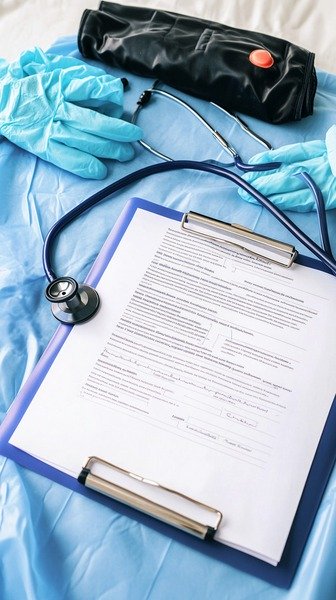Seeking post-abortion care is crucial for ensuring physical and emotional well-being after the procedure. Recognizing when to seek this care can prevent complications and promote a healthy recovery. It’s essential to be informed about symptoms that may indicate the need for medical attention, such as excessive bleeding, severe pain, fever, or signs of infection. Additionally, emotional support and counseling may be necessary to address any psychological effects.
Post-abortion care is essential to ensure that you recover well after the procedure and to address any potential complications or concerns. Knowing when and why to seek post-abortion care is crucial for your health and well-being. Here’s a detailed overview of when you should seek post-abortion care and the factors to consider:
1. Persistent or Severe Pain
If you experience persistent or severe pain after an abortion, it is essential to seek medical attention. Some cramping and discomfort are expected after the procedure, but if the pain is intense, prolonged, or worsening, it could indicate complications such as infection, retained tissue, or other issues. Immediate medical evaluation is necessary to identify the cause and receive appropriate treatment.
To ensure the best care, it’s essential to consider professional medication abortion services, where experienced providers can offer expert guidance and address any complications that arise.
2. Heavy or Prolonged Bleeding
Post-abortion bleeding is normal and can vary in duration and intensity. However, if you experience hefty bleeding (soaking through more than one sanitary pad per hour) or bleeding that lasts significantly longer than expected, you should seek care. Heavy bleeding could be a sign of complications such as incomplete abortion or hemorrhage. It is essential to have a healthcare provider assess your condition to ensure proper recovery.
3. Signs of Infection
Symptoms of infection after an abortion can include fever, chills, foul-smelling discharge, or redness and swelling around the vaginal area. Infections can occur if bacteria enter the uterus during or after the procedure. If you notice any signs of infection, it is crucial to seek prompt medical care to prevent further complications and receive appropriate treatment, such as antibiotics.
4. Unusual Discharge
It is expected to have some vaginal discharge after an abortion, but it should gradually decrease in amount and change in color. If you experience unusual discharge—such as discharge that is green or yellow, has a strong odor, or is accompanied by other symptoms—seek medical attention. Unusual discharge can be a sign of infection or other complications that must be addressed.
5. Fever or Chills
A low-grade fever may be expected in the first few days following an abortion, but a high fever or chills can indicate an infection or other health issues. If you develop a fever that persists or is accompanied by other symptoms, contact your healthcare provider for evaluation and treatment.
6. Emotional and Psychological Support
Emotional and psychological support is an essential aspect of post-abortion care. It is expected to experience a range of emotions following an abortion, including relief, sadness, or guilt. If you find that you are struggling with emotional distress or mental health issues after the procedure, consider seeking counseling or support from mental health professionals. They can provide support and help you navigate your feelings and mental well-being.
7. Follow-Up Appointments
Attending abortion after care appointments with a healthcare provider is essential for ensuring that the abortion is complete and that you are recovering well. These appointments allow your provider to check for potential complications, confirm that the uterus has healed properly, and address any concerns you may have. Following your provider’s recommendations for follow-up care is crucial for a healthy recovery.
8. Problems with Contraception
If you had an abortion due to a lack of effective contraception or if you are concerned about your contraceptive options moving forward, seek advice from your healthcare provider. They can help you explore different contraceptive methods and develop a plan to prevent future unplanned pregnancies.
9. Persistent Symptoms of Pregnancy
If you continue to experience symptoms of pregnancy, such as nausea or breast tenderness, after the abortion, it may indicate that the abortion was not complete or that another issue is present. Contact your healthcare provider or visit The Women’s Centers to discuss these symptoms and determine if further evaluation or treatment is necessary. The Women’s Centers specialize in reproductive health and can offer the necessary support and care during this time.
10. General Health Concerns
If you have any general health concerns or experience symptoms that are unusual for you after an abortion, it is always best to consult with your healthcare provider. Your overall well-being is essential, and your concerns should be addressed to ensure a smooth and healthy recovery.
Wrapping Up
Seeking post-abortion care is crucial for ensuring your health and well-being after the procedure. Knowing when to seek medical attention—such as for persistent pain, heavy bleeding, signs of infection, unusual discharge, or emotional distress—can help you recover effectively and address any complications that may arise. Follow-up appointments, emotional support, and proper contraceptive planning are also essential components of post-abortion care. You can ensure a safe and supportive recovery process by staying vigilant and seeking appropriate care when needed.


